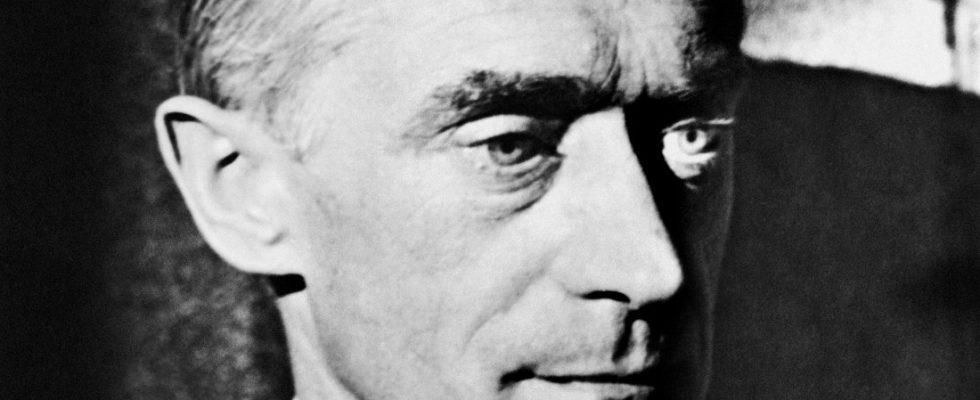Würzburg at the turn of the 20th century. A dozen apprentices have formed a “gang of robbers”. They call themselves “Winnetou”, “Oldshatterhand” and “Red Cloud”. The fourteen-year-olds “can’t stand it,” not the conditions with their parents in the little people quarter across the Main, not the drill and sadism of school, church and masters.
At night they sneak away. They dance around the campfire in the moats of Marienberg Fortress and imagine setting the musty town on fire. “It’s a dark night, and before you know it, a church-tower-high flame hits the sky … It immediately covers the town hall and the square … while we’re already sailing down the Main in our ship. Ha!”
Boy’s dreams inspired by Karl May, cocky and high-flying. However, Leonhard Frank’s 1914 novel “Die Räuberbande” is not limited to campfire romance. He expresses a socially critical attitude, which was a matter close to the heart of the writer, who was born in the Mainviertel in 1882 as the fourth child of a journeyman carpenter.
Max Brod applauds Frank’s debut book
For his autobiographical debut, Frank was immediately honored with the Fontane Prize and suddenly became famous. Max Brod was jubilant: “Indeed, this first book shows a complete, completely independent poet who gets on with just about everything that he tackles with his very structured prose.” The autodidact only needs a few words to let his hometown, with which he has had a love-hate relationship all his life, come to life before the eyes of the readers. The first sentences read: “The air and houses trembled, because the thirty church tower bells of Würzburg rang out loudly together for the Saturday evening service. And the great bell of the cathedral rang out powerfully and far-reaching from everyone, asserted itself to the end and faded away.”
The omnipresence of Würzburg’s churches: here St. Kililian’s Cathedral around 1926, which is mentioned in Frank’s novel.
(Photo: Scherl/Süddeutsche Zeitung Photo)
Frank’s simple but powerful style is the result of meticulous filing. In his autobiographical memoir “Links wo das Herz ist” from 1952, his alter ego Michael Vierkant describes the writer’s life in an only slightly alienated way and says that he worked three months on the first half page of the “gang of robbers”.
Michael Vierkant: The name is well known to readers of the “gang of robbers”. That’s the real name of “Oldshatterhand”, who, like Frank, comes from a poor family of carpenters. In the course of the novel, he is the only one who takes a life that defies convention seriously. While the others fit into society after their rebel years, Michael aka “Oldshatterhand” takes the path of an artist. He went to the Academy of Fine Arts in Munich and hung around in the bohemian world. Finally he chooses suicide, which is to be understood here primarily symbolically: “There are only two things – lie like the others: be like them; or despise their contempt: be lonely.”
Leonhard Frank himself completed an apprenticeship as a mechanic before moving to Munich after various jobs in 1904 to study painting and graphics. Six years later he moved to Berlin and began to write. He was poor, only the success of the “gang of robbers” made him financially independent. Even if he enjoyed life from then on, he always remained true to his humanistic ideals.
Escape from the Nazis to the USA
In 1914 he was one of the few artists who opposed the war from the very beginning. A year after the outbreak of World War I, he emigrated to Switzerland and published “Man is good” there, a volume of anti-war novellas that found its way home in an adventurous manner. He called himself a “feeling socialist”. The first and so far only biography of Katharina Rudolph from 2020 bears the title “Rebel in a tailor-made suit”. A person with contradictions, who was ridiculed by his contemporaries: “People eat well.”
After the war he returned to Berlin and became one of the most popular writers; Lion Feuchtwanger and Thomas Mann were among his friends. When the Nazis seized power, he fled to Switzerland and France, and finally managed to escape to the USA via Spain and Portugal in 1940. Five years after the end of the war he returned to Germany. While he was increasingly forgotten in the West, he was celebrated in the GDR. In 1961 he died in Munich.
For decades, his hometown of Würzburg had a hard time with her famous son. He was resented for the book “The Disciples of Jesus” published in 1949, which, among other things, dealt with the continued existence of Nazi ideology in Würzburg. In 1952, on his 70th birthday, an official celebration was refused to name a street after him after his death. It was not until 1991 that the Würzburg beautification association placed a commemorative plaque near Frank’s birthplace, which has long since disappeared. After that one gradually begins to appreciate the life and work of the despised. The work of the Leonhard Frank Society, founded in 1982, certainly contributed to this. There were already beautiful sentences in the “gang of robbers” like: “The Main, which divides the city into two parts, shone. Every star stood clear and sharp in the greenish sky. The whole old city was made of pure silver.”
Leonhard Frank, “The band of robbers”, with an afterword by Michael Henke, Milena Verlag, Vienna 2016, 291 pages, 23 euros

